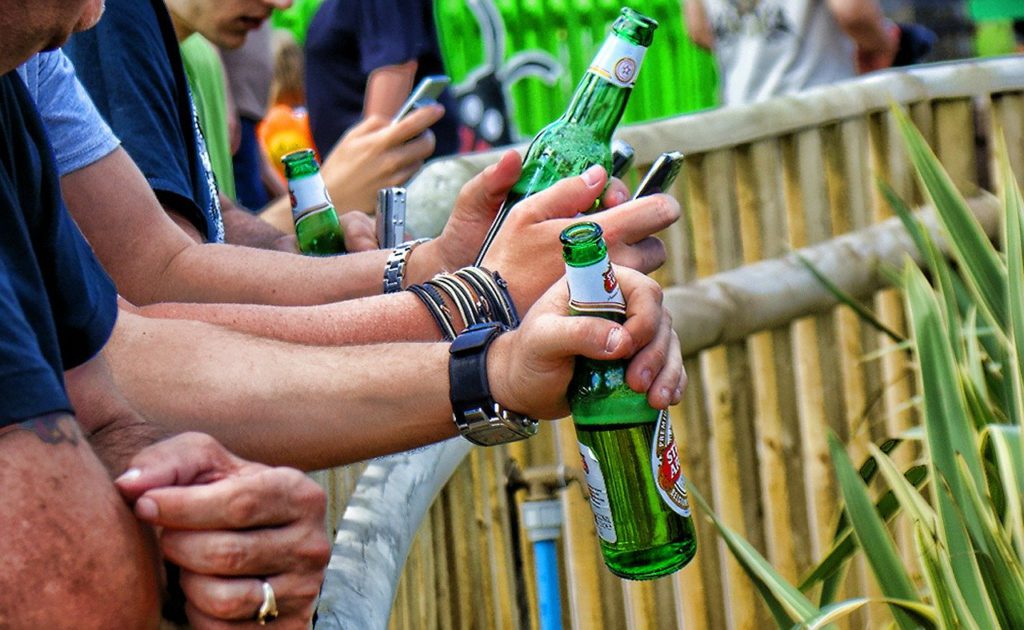
Your Guide to South Florida Rehab Facilities: Finding the Right Fit
Find top rehab facilities in South Florida. Explore detox options, costs, and expert care for your personalized recovery journey.

May 23, 2020
Alcohol abuse, alcohol dependence, and alcohol addiction are all terms that can be used to describe a person’s drinking problem. Knowing the difference between these 3 terms can help you understand more about substance use disorders in general and empower you to seek the right alcohol rehab program for you or a loved one who may have a drinking problem.
Alcohol abuse, also known as alcohol misuse, is when a person’s drinking behavior starts causing problems with their livelihood. They may start falling behind in school and suffer poor grades or struggle with making it to work on time and fulfilling professional responsibilities. Alcohol misuse may also trigger or worsen certain health problems, and lead to strained relationships between family, friends, and partners. For some, alcohol misuse may also lead to dangerous situations and legal problems.
The CDC defines alcohol misuse as having more than 1 drink per day for women and more than 2 drinks per day for men, on average. Alcohol misuse is a known risk factor for unintentional injuries, violence, risky sexual behavior, liver disease, heart disease, stroke, dementia, and many types of cancer.
People who abuse alcohol are not necessarily dependent on it. They may not crave alcohol or need it to stop tremors, shaking, and other associated withdrawal symptoms. However, alcohol abuse is a serious problem that must be stopped and controlled before it progresses to dependence and addiction.
Alcohol dependence is a physical dependence on alcohol, characterized by the onset of withdrawal symptoms when a person suddenly stops or reduces the amount they drink. A person who is physically dependent on alcohol may experience cravings for alcohol and need it to feel less ill and to make certain symptoms go away. Alcohol withdrawal symptoms are mostly physical in nature, but may also include psychological symptoms that cause distress and discomfort.
How does one become dependent on alcohol? Alcohol dependence usually begins with tolerance, which occurs when someone who drinks regularly stops feeling the effects of alcohol and needs higher amounts to achieve the same effect. People who binge drink or who drink high amounts of alcohol on a regular basis are often putting themselves at risk for tolerance and alcohol dependence.
Supplying the body with high amounts of alcohol makes the body dependent on alcohol to perform certain bodily processes. For example, alcohol increases the amount of dopamine — a feel-good chemical responsible for feelings of euphoria and pleasure — in the brain. Over time with repeated, regular drinking, the brain can stop producing dopamine on its own and comes to rely on alcohol for this process. This can cause people to “crave” and need alcohol under the impression they need it to feel good.
Alcohol dependence is extremely dangerous, since stopping or reducing alcohol use after becoming dependent can lead to life-threatening complications in some individuals. Seizures are a common alcohol withdrawal symptom experienced by those who are heavy drinkers and who are severely dependent on alcohol. Between 5% and 25% of people who suffer severe alcohol withdrawal syndrome end up dying from their symptoms and related complications.
People who are dependent on alcohol will experience a set of withdrawal symptoms when abruptly discontinuing or reducing alcohol use. Symptoms usually set in within 6 to 24 hours after the last drink and last for up to 10 days. Most withdrawal symptoms peak and are at their most severe between the second and fourth days after ceasing alcohol use.
Symptoms of alcohol withdrawal may include:
If you or a loved one is exhibiting one or more of the above symptoms when ceasing alcohol use after a period of heavy or regular drinking, it’s highly possible alcohol dependence is the cause. Seeking help and treatment at alcohol rehab can help you or your loved one experience a safe withdrawal and recovery.
Alcohol addiction is also known as alcohol use disorder and is referred to by some as alcoholism. Alcohol use disorder affects an estimated 16 million people in the U.S. This condition is defined as a chronic relapsing brain disease marked by compulsive alcohol use, the inability to control alcohol intake, and the manifestation of negative emotions when not drinking. Many people who are addicted to alcohol are also physically dependent on alcohol.
To be officially diagnosed with alcohol use disorder, people must meet at least 2 of 11 criteria within a 12-month period as outlined in the Diagnostic and Statistical Manual of Mental Disorders – 5th Edition (DSM-5).
The 11 criteria for alcohol use disorder per the DSM-5 are as follows:
The severity of alcohol addiction is based on the number of criteria met. If you or a loved one meet at least 2 of the above criteria, an alcohol rehab center can perform an evaluation to determine the severity level of the addiction and develop a customized treatment plan.
Alcohol abuse, dependence, and addiction can all be safely and effectively treated at alcohol rehab. When people first arrive at an alcohol rehab center, they undergo an examination and assessment that help the medical staff determine the severity of the addiction. Then, a team of nurses, doctors, counselors, psychologists, and/or psychiatrists develop a customized treatment plan for the individual based on their results and unique situation.
Alcohol dependence is treated using alcohol detox. Alcohol detox is the management of physical withdrawal symptoms and takes place in either a relaxing residential setting or at a hospital-like setting, based on the level of dependence. This treatment allows people to safely withdraw from alcohol while being monitored closely by medical staff and using medications that relieve or reduce symptoms.
After alcohol detox, patients receive behavioral therapy and counseling to recover from alcohol abuse and/or alcohol addiction. These interventions focus on modifying harmful behaviors and beliefs surrounding alcohol abuse and addiction and teach patients skills for managing triggers and staying sober. Cognitive-behavioral therapy (CBT), motivational enhancement therapy, and family therapy are some common therapies used at alcohol rehab to treat alcohol addiction.
Recovery from alcohol addiction at Summer House begins with a safe, relaxing alcohol detox in Florida that involves the use of medications that reduce withdrawal symptoms. Alcohol detox at Summer House takes place in a luxury setting where you can withdraw from alcohol while enjoying our amenities and services such as yoga, acupuncture, and massage therapy. After you complete our alcohol detox program, we will refer you to an alcohol rehab center where you can receive therapy and counseling for your addiction.
If you or someone you know is in need of alcohol detox in Fort Lauderdale, give Summer House Detox Center a call at 800-719-1090 to schedule a FREE consultation. You can also visit us at 13550 Memorial Highway Miami, FL 33161. We are open 24 hours a day, 7 days a week.

Find top rehab facilities in South Florida. Explore detox options, costs, and expert care for your personalized recovery journey.

Learn about infant opiate withdrawal symptoms, diagnosis, and modern treatments. Find support for mothers and babies affected by NAS.

Unlock lasting freedom! Learn the true methadone detox success rate, compare treatments, and find your path to recovery in Miami.
For immediate assistance, please call our Admissions Specialists at 800-719-1090.
Speak With A Qualified Addiction Specialist 24/7